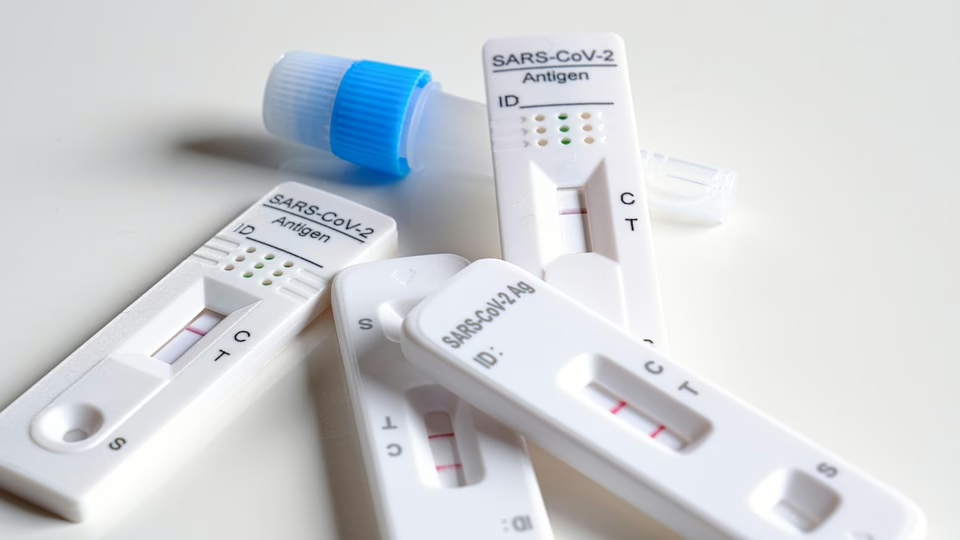Exam Day Essentials: How to Stay Calm and Focused
For students, few days hold the weight and pressure of exam day. Weeks, months, or even years of studying culminate in a single, high-stakes assessment. While preparation is undoubtedly crucial, mastering the art of staying calm and focused on exam day is equally important. A racing heart, wandering mind, or crippling anxiety can undermine even the most diligent student. This article delves into the essential strategies and techniques to navigate the challenges of exam day, transforming potential stress into focused performance.
Part 1: The Psychology of Exam Stress
Before addressing solutions, understanding the root causes of exam stress is paramount. Exam stress isn’t simply a case of nerves; it’s a complex psychological response to perceived threat and pressure.
1.1. The Fight-or-Flight Response:
The body’s natural reaction to stress is the “fight-or-flight” response. Triggered by the sympathetic nervous system, this response floods the body with hormones like adrenaline and cortisol, preparing it to confront or escape a perceived danger.[modern_fn note=”Cannon, W. B. (1915). Bodily Changes in Pain, Hunger, Fear and Rage: An Account of Recent Researches into the Function of Emotional Excitement. D. Appleton and Company.”] This can manifest as increased heart rate, rapid breathing, sweating, and muscle tension. While beneficial in genuinely dangerous situations, this physiological response is counterproductive during an exam. It impairs cognitive function, making it difficult to recall information and think clearly.
1.2. Cognitive Appraisals and the Role of Perception:
Our perception of the exam significantly influences our stress levels. Cognitive appraisal theory suggests that we evaluate events (like exams) and determine their significance. If we appraise the exam as overwhelmingly threatening and beyond our coping abilities, we experience significant stress.[modern_fn note=”Lazarus, R. S., & Folkman, S. (1984). Stress, appraisal, and coping. Springer publishing company.”] This appraisal is often influenced by factors like past experiences, perceived preparedness, and the importance we place on the outcome. A student who failed a previous exam, feels underprepared, or believes their entire future hinges on this single test is more likely to experience debilitating stress.
1.3. The Fear of Failure:
The fear of failure is a powerful motivator, but when excessive, it becomes a major source of anxiety. This fear stems from various sources, including societal pressure to succeed, parental expectations, and internal self-criticism. The fear of disappointing others or falling short of personal goals can create a paralyzing effect, preventing students from performing at their best. [modern_fn note=”Conroy, D. E., Willow, J. P., & Metzler, J. N. (2002). Multidimensional fear of failure measurement: The Performance Failure Appraisal Inventory. Journal of Applied Sport Psychology, 14(2), 76-90.”] Overthinking potential negative outcomes (“What if I blank out?” “What if I run out of time?”) exacerbates this fear and contributes to a downward spiral of anxiety.
1.4. Perfectionism: A Double-Edged Sword:
While striving for excellence is admirable, perfectionism can be detrimental to exam performance. Perfectionists set unrealistically high standards for themselves and are overly critical of their own work. The pressure to achieve flawless results creates immense stress and anxiety. [modern_fn note=”Burns, D. D. (1980). Feeling good: The new mood therapy. New York: Signet.”] Even minor mistakes can trigger feelings of inadequacy and self-doubt, leading to a loss of focus and confidence. Perfectionism can also manifest as procrastination, as students may avoid starting or completing tasks for fear of not meeting their own impossibly high expectations.
1.5. The Impact of Sleep Deprivation and Poor Nutrition:
In the days leading up to the exam, many students sacrifice sleep and healthy eating habits in an attempt to cram in more study time. However, this approach is counterproductive. Sleep deprivation impairs cognitive function, memory consolidation, and decision-making abilities. Poor nutrition deprives the brain of the essential nutrients it needs to function optimally. [modern_fn note=”Alparslan, G. B., & Vural, M. (2017). The effect of sleep quality on academic achievement in university students: A meta-analysis. Educational Psychology, 37(8), 995-1011.”] Both sleep deprivation and poor nutrition contribute to increased stress levels and reduced mental clarity on exam day.
1.6. Social Comparison and Competition:
The competitive nature of academics can fuel exam stress. Students often compare themselves to their peers, leading to feelings of inadequacy and anxiety. Seeing others studying harder or appearing more confident can trigger self-doubt and increase the pressure to perform well. Social media further exacerbates this problem, as students are constantly exposed to idealized portrayals of academic success. [modern_fn note=”Festinger, L. (1954). A theory of social comparison processes. Human Relations, 7(2), 117-140.”] It’s important to remember that everyone learns and prepares differently, and comparing oneself to others is often an inaccurate and unhelpful measure of progress.
Part 2: Strategies for Cultivating Calmness
Addressing the psychological roots of exam stress requires a multifaceted approach. The following strategies can help students cultivate calmness and resilience in the face of pressure.
2.1. Mindful Preparation and Strategic Studying:
Effective preparation is the cornerstone of confidence and calmness. However, simply spending hours studying isn’t enough. Strategic studying involves understanding the exam format, identifying key concepts, and practicing active recall.
- Planning and Organization: Create a realistic study schedule that breaks down the material into manageable chunks. Use tools like calendars, to-do lists, and mind maps to organize your time and track your progress. Avoid cramming by starting your preparation well in advance of the exam.
- Active Recall: Don’t just passively read or highlight information. Engage in active recall techniques such as flashcards, practice questions, and teaching the material to someone else. Active recall strengthens memory and improves understanding.
- Practice Exams: Simulate the exam environment by taking practice exams under timed conditions. This helps you familiarize yourself with the format, identify areas of weakness, and build confidence. [modern_fn note=”Brown, P. C., Roediger III, H. L., & McDaniel, M. A. (2014). Make it stick: The science of successful learning. Harvard University Press.”]
- Spaced Repetition: Review material at increasing intervals to reinforce memory and combat the forgetting curve. Spaced repetition is more effective than cramming because it allows the brain to consolidate information over time.
- Prioritize Understanding over Memorization: Focus on understanding the underlying concepts rather than simply memorizing facts. Understanding allows you to apply your knowledge in different contexts and answer questions more effectively.
2.2. Mindfulness and Meditation Techniques:
Mindfulness and meditation are powerful tools for reducing stress and improving focus. These techniques involve paying attention to the present moment without judgment.
- Deep Breathing Exercises: Practice deep breathing exercises to activate the parasympathetic nervous system, which promotes relaxation and reduces heart rate. A simple technique involves inhaling deeply through the nose, holding for a few seconds, and exhaling slowly through the mouth. [modern_fn note=”Brown, R. P., Gerbarg, P. L., & Muskin, P. R. (2013). The healing power of the breath: Simple techniques to reduce stress and anxiety, enhance concentration, improve sleep, and help lower blood pressure. Shambhala Publications.”]
- Body Scan Meditation: Lie down or sit comfortably and bring your attention to different parts of your body, noticing any sensations without judgment. This helps you become more aware of your physical state and release tension.
- Mindful Walking: Pay attention to the sensations of your feet touching the ground as you walk. Notice the sights, sounds, and smells around you. This helps you anchor yourself in the present moment and escape from racing thoughts.
- Guided Meditations: Use guided meditation apps or recordings to lead you through relaxation exercises and visualization techniques. These can be particularly helpful for beginners. Headspace, Calm, and Insight Timer are popular options. [modern_fn note=”Tang, Y. Y., Hölzel, B. K., & Posner, M. I. (2015). The neuroscience of mindfulness meditation. Nature Reviews Neuroscience, 16(4), 213-225.”]
2.3. Cognitive Restructuring: Challenging Negative Thoughts:
Negative thoughts can amplify exam stress and undermine confidence. Cognitive restructuring involves identifying and challenging these negative thoughts and replacing them with more realistic and positive ones.
- Identify Negative Thoughts: Become aware of the negative thoughts that arise when you think about the exam. Write them down in a journal or notebook. Examples include: “I’m going to fail,” “I’m not smart enough,” or “I’ll never remember everything.”
- Challenge Negative Thoughts: Question the validity of these negative thoughts. Are they based on facts or assumptions? Is there any evidence to support them? What would you say to a friend who was having the same thoughts?
- Replace Negative Thoughts with Positive Affirmations: Develop positive affirmations that counter the negative thoughts. Examples include: “I am well-prepared,” “I can handle this,” or “I will do my best.” Repeat these affirmations regularly to reinforce positive thinking. [modern_fn note=”Beck, A. T. (1976). Cognitive therapy and the emotional disorders. International Universities Press.”]
- Focus on What You Can Control: Instead of dwelling on things you can’t control (e.g., the difficulty of the exam, the performance of other students), focus on what you can control (e.g., your preparation, your effort, your attitude).
2.4. Visualization Techniques: Imagining Success:
Visualization involves creating a mental image of yourself succeeding in the exam. This can help boost confidence and reduce anxiety.
- Imagine Yourself Calm and Focused: Close your eyes and imagine yourself sitting in the exam room, feeling calm, confident, and focused. Visualize yourself reading the questions carefully, recalling the information you need, and writing clear and concise answers.
- Visualize the Entire Process: Visualize the entire exam process, from arriving at the exam room to submitting your paper. Imagine yourself handling any challenges that arise with calmness and composure.
- Engage Your Senses: Make the visualization as vivid as possible by engaging your senses. Imagine the sights, sounds, smells, and even the feeling of the pen in your hand.
- Practice Regularly: Practice visualization regularly in the days and weeks leading up to the exam. The more you practice, the more effective it will be. [modern_fn note=”Murphy, M., Donovan, S., Taylor, E., & Yorks, B. (1976). The psychic side of sports. Addison-Wesley Publishing Company.”]
2.5. Physical Activity and Exercise:
Physical activity is a powerful stress reliever. Exercise releases endorphins, which have mood-boosting effects.
- Regular Exercise: Aim for at least 30 minutes of moderate-intensity exercise most days of the week. This could include walking, jogging, swimming, cycling, or dancing.
- Short Bursts of Activity: Even short bursts of activity can be beneficial. Take a quick walk around the block, do some jumping jacks, or stretch at your desk.
- Yoga and Tai Chi: Yoga and Tai Chi combine physical activity with mindfulness and breathing exercises, making them particularly effective for reducing stress and improving focus. [modern_fn note=”Cramer, H., Lauche, R., Langhorst, J., Dobos, G., & Paul, A. (2013). Yoga for anxiety: A systematic review and meta-analysis of randomized controlled trials. Depression and Anxiety, 30(12), 1068-1083.”]
- Avoid Sedentary Behavior: Break up long periods of sitting by standing up and moving around every 30 minutes.
2.6. Healthy Diet and Hydration:
A healthy diet provides the brain with the nutrients it needs to function optimally. Hydration is also essential for cognitive performance.
- Eat a Balanced Diet: Focus on eating whole, unprocessed foods such as fruits, vegetables, whole grains, and lean protein. Avoid sugary drinks, processed foods, and excessive amounts of caffeine.
- Eat Regular Meals: Don’t skip meals, especially breakfast. Eating regular meals helps maintain stable blood sugar levels, which is important for energy and focus.
- Stay Hydrated: Drink plenty of water throughout the day. Dehydration can impair cognitive function and increase stress levels. [modern_fn note=”Popkin, B. M., D’Anci, K. E., & Rosenberg, I. H. (2010). Water, hydration, and health. Nutrition Reviews, 68(8), 439-458.”]
- Avoid Excessive Caffeine and Alcohol: Caffeine can provide a temporary boost of energy, but it can also lead to anxiety and insomnia. Alcohol can disrupt sleep and impair cognitive function.
2.7. Prioritize Sleep:
Adequate sleep is essential for cognitive function and emotional regulation. Aim for 7-9 hours of sleep per night in the days leading up to the exam.
- Establish a Regular Sleep Schedule: Go to bed and wake up at the same time each day, even on weekends, to regulate your body’s natural sleep-wake cycle.
- Create a Relaxing Bedtime Routine: Avoid screen time for at least an hour before bed. Engage in relaxing activities such as reading, taking a warm bath, or listening to calming music.
- Optimize Your Sleep Environment: Make sure your bedroom is dark, quiet, and cool.
- Avoid Caffeine and Alcohol Before Bed: These substances can interfere with sleep. [modern_fn note=”Walker, M. (2017). Why we sleep: Unlocking the power of sleep and dreams. Scribner.”]
2.8. Social Support and Connection:
Talking to friends, family members, or a therapist can help reduce stress and provide emotional support.
- Talk to Someone You Trust: Share your anxieties and concerns with someone who will listen and offer support.
- Join a Study Group: Studying with others can provide a sense of camaraderie and reduce feelings of isolation.
- Seek Professional Help: If you are struggling with severe anxiety or stress, consider seeking professional help from a therapist or counselor.
- Limit Exposure to Negative Influences: Avoid spending time with people who are overly stressed or negative. [modern_fn note=”Ozbay, F., Johnson, D. C., Dimoulas, E., Morgan III, C. A., Morgan, P., Blow, A. J., … & Ursano, R. J. (2007). Social support and resilience to stress: from neurobiology to clinical practice. Psychiatry (Edgmont), 4(5), 35.”]
Part 3: Exam Day Strategies: Maintaining Focus and Calm Under Pressure
The strategies outlined above lay the foundation for calmness. However, exam day itself requires specific techniques to maintain focus and manage anxiety in the moment.
3.1. Pre-Exam Rituals and Routine:
Establish a consistent pre-exam routine to create a sense of predictability and control.
- Prepare the Night Before: Gather all the materials you need for the exam (e.g., pens, pencils, calculator, ID) and pack them in your bag. This will prevent last-minute scrambling and reduce stress.
- Get a Good Night’s Sleep: Prioritize sleep the night before the exam. Avoid staying up late to cram.
- Eat a Healthy Breakfast: Fuel your brain with a nutritious breakfast that will provide sustained energy.
- Arrive Early: Allow yourself plenty of time to get to the exam room. This will prevent you from feeling rushed and stressed.
- Avoid Talking to Anxious Students: Surrounding yourself with anxious students can increase your own anxiety. Find a quiet place to relax and focus.
3.2. Managing Anxiety in the Exam Room:
Even with careful preparation, anxiety can still creep in during the exam.
- Deep Breathing: If you start to feel anxious, take a few deep breaths to calm your nerves. Inhale deeply through the nose, hold for a few seconds, and exhale slowly through the mouth.
- Progressive Muscle Relaxation: Tense and release different muscle groups in your body to release tension. Start with your toes and work your way up to your head. [modern_fn note=”Jacobson, E. (1938). Progressive Relaxation. University of Chicago Press.”]
- Positive Self-Talk: Replace negative thoughts with positive affirmations. Remind yourself that you are well-prepared and capable of succeeding.
- Focus on the Task at Hand: Concentrate on reading the questions carefully and answering them to the best of your ability. Avoid dwelling on past mistakes or worrying about the future.
- Take Breaks When Needed: If you start to feel overwhelmed, take a short break to stretch, close your eyes, or take a few deep breaths.
- Grounding Techniques: If you feel overwhelmed, try grounding techniques. Look around the room and identify five things you can see, four things you can touch, three things you can hear, two things you can smell, and one thing you can taste. This can help anchor you to the present moment.
3.3. Time Management Strategies:
Effective time management is crucial for completing the exam within the allotted time.
- Read the Instructions Carefully: Before you begin, read the instructions carefully to understand the exam format, point values, and time limits.
- Allocate Your Time: Divide the total exam time by the number of questions to determine how much time you can spend on each question.
- Prioritize Questions: Start with the questions you know best to build confidence and earn easy points. Save the more challenging questions for later.
- Don’t Get Stuck on One Question: If you get stuck on a question, move on and come back to it later. Spending too much time on one question can prevent you from completing the rest of the exam.
- Review Your Answers: If you have time left at the end of the exam, review your answers to check for errors and ensure that you have answered all the questions.
3.4. Dealing with Panic Attacks:
In rare cases, exam stress can trigger a panic attack. It’s important to know how to respond if this happens.
- Recognize the Symptoms: Panic attacks can cause a variety of physical and psychological symptoms, including rapid heart rate, shortness of breath, dizziness, sweating, trembling, and feelings of unreality.
- Stay Calm: Remind yourself that the panic attack is temporary and will pass.
- Focus on Your Breathing: Take slow, deep breaths to regulate your breathing.
- Use Grounding Techniques: Focus on your senses to anchor yourself in the present moment.
- Seek Help if Needed: If you have a history of panic attacks, talk to your doctor or therapist about strategies for managing them during exams. You may also be able to request accommodations, such as extra time or a separate testing room.
3.5. Post-Exam Reflection and Learning:
The learning process doesn’t end when the exam is over. Take time to reflect on your performance and identify areas for improvement.
- Review Your Exam: Once you receive your exam back, review it carefully to understand your mistakes and learn from them.
- Identify Areas for Improvement: Identify areas where you struggled and develop strategies for improving your understanding of those concepts.
- Adjust Your Study Habits: Based on your exam performance, adjust your study habits to be more effective in the future.
- Celebrate Your Accomplishments: Acknowledge and celebrate your accomplishments, regardless of the outcome of the exam. Learning is a process, and every exam provides an opportunity to grow and improve.
Part 4: Long-Term Strategies for Building Resilience to Exam Stress
Exam stress is often a recurring issue throughout a student’s academic career. Building long-term resilience is key to managing stress effectively and achieving sustained success.
4.1. Cultivating a Growth Mindset:
A growth mindset is the belief that intelligence and abilities can be developed through effort, learning, and perseverance. Students with a growth mindset are more likely to embrace challenges, persist through setbacks, and view failure as an opportunity to learn. [modern_fn note=”Dweck, C. S. (2006). Mindset: The new psychology of success. Random House.”]
- Embrace Challenges: View challenges as opportunities to learn and grow.
- Persist Through Setbacks: Don’t give up when you encounter difficulties. Learn from your mistakes and keep trying.
- Value Effort Over Talent: Focus on putting in the effort and dedication needed to succeed.
- Learn from Feedback: Use feedback to identify areas for improvement and adjust your approach.
- Be Inspired by the Success of Others: View the success of others as a source of inspiration rather than intimidation.
4.2. Developing Effective Coping Mechanisms:
Coping mechanisms are strategies that people use to manage stress and difficult emotions. Developing a repertoire of healthy coping mechanisms is essential for building resilience.
- Problem-Focused Coping: Identify the source of stress and take steps to address it. This might involve creating a study schedule, seeking help from a tutor, or breaking down a large task into smaller, more manageable steps.
- Emotion-Focused Coping: Manage the emotional response to stress. This might involve practicing relaxation techniques, engaging in hobbies, or spending time with loved ones.
- Avoidance Coping: Avoid dealing with the source of stress. While avoidance coping can provide temporary relief, it is generally not a healthy long-term strategy.
- Seek Professional Guidance: A therapist can help you identify and develop effective coping mechanisms for managing stress and anxiety.
4.3. Building a Strong Support System:
Having a strong support system can provide emotional support, reduce feelings of isolation, and help you cope with stress.
- Nurture Relationships: Invest time and effort in building strong relationships with family members, friends, and mentors.
- Communicate Your Needs: Let your loved ones know when you are struggling and ask for their support.
- Be Supportive of Others: Offer support to others who are struggling.
- Join a Community: Participate in activities and groups that align with your interests and values.
4.4. Practicing Self-Compassion:
Self-compassion involves treating yourself with kindness, understanding, and acceptance, especially during difficult times.
- Recognize Your Suffering: Acknowledge that you are experiencing pain and difficulty.
- Practice Mindfulness: Be aware of your thoughts and feelings without judgment.
- Treat Yourself with Kindness: Offer yourself the same kindness and compassion that you would offer to a friend.
- Remember Common Humanity: Recognize that everyone experiences suffering and that you are not alone. [modern_fn note=”Neff, K. (2011). Self-compassion: The proven power of being kind to yourself. William Morrow.”]
4.5. Maintaining a Healthy Lifestyle:
A healthy lifestyle is essential for building resilience to stress.
- Prioritize Sleep: Aim for 7-9 hours of sleep per night.
- Eat a Balanced Diet: Focus on eating whole, unprocessed foods.
- Exercise Regularly: Engage in at least 30 minutes of moderate-intensity exercise most days of the week.
- Manage Stress: Practice relaxation techniques, such as mindfulness and meditation.
- Limit Alcohol and Caffeine: Avoid excessive consumption of alcohol and caffeine.
Part 5: Addressing Specific Challenges
While the previous strategies offer general guidance, some students face specific challenges that require tailored approaches.
5.1. Test Anxiety Disorder:
Test anxiety disorder is a severe form of anxiety that can significantly impair exam performance. It is characterized by excessive worry, fear, and physiological symptoms. Students with test anxiety disorder may benefit from professional treatment, such as cognitive behavioral therapy (CBT) or medication. [modern_fn note=”Spielberger, C. D., & Vagg, P. R. (1995). Test anxiety: Theory, assessment, and treatment. Taylor & Francis.”]
- Cognitive Behavioral Therapy (CBT): CBT helps students identify and challenge negative thoughts and behaviors that contribute to test anxiety.
- Medication: Anti-anxiety medications may be prescribed to help manage the symptoms of test anxiety.
- Relaxation Techniques: Practice relaxation techniques, such as deep breathing and progressive muscle relaxation, to reduce anxiety.
- Exposure Therapy: Gradually expose yourself to the exam environment to reduce anxiety.
5.2. Learning Disabilities:
Students with learning disabilities may face unique challenges on exam day. It’s important to seek accommodations and utilize strategies that address specific learning needs.
- Seek Accommodations: Request accommodations from the school, such as extended time, a separate testing room, or the use of assistive technology.
- Utilize Assistive Technology: Use assistive technology, such as screen readers, text-to-speech software, or graphic organizers, to support learning and memory.
- Break Down Tasks: Break down large tasks into smaller, more manageable steps.
- Use Visual Aids: Use visual aids, such as diagrams, charts, and mind maps, to organize information and improve understanding.
- Seek Support: Work with a tutor or learning specialist to develop strategies for addressing specific learning challenges.
5.3. Attention-Deficit/Hyperactivity Disorder (ADHD):
Students with ADHD may struggle with focus, attention, and impulsivity on exam day. Strategies for managing these challenges include:
- Medication: Medication can help improve focus and attention.
- Structure and Routine: Establish a consistent study schedule and exam-day routine.
- Minimize Distractions: Study in a quiet environment with minimal distractions.
- Take Breaks: Take frequent breaks to move around and recharge.
- Use Time-Management Techniques: Use time-management techniques, such as timers and to-do lists, to stay on track.
- Seek Accommodations: Request accommodations, such as extended time or a separate testing room.
5.4. Trauma and Past Experiences:
Past traumatic experiences can significantly impact exam performance. Students who have experienced trauma may benefit from professional therapy to process their experiences and develop coping mechanisms.
- Seek Therapy: Therapy can help students process traumatic experiences and develop coping mechanisms for managing stress and anxiety.
- Practice Self-Care: Prioritize self-care activities that promote relaxation and well-being.
- Create a Safe Space: Create a safe and comfortable environment for studying and taking exams.
- Communicate Your Needs: Communicate your needs to professors and instructors.
- Seek Support: Connect with support groups or organizations that provide resources for trauma survivors.
Part 6: The Role of Parents and Educators
Creating a supportive environment for students is crucial for reducing exam stress. Parents and educators play a vital role in fostering a healthy attitude towards learning and assessment.
6.1. Supporting Students at Home (For Parents):
- Focus on Effort and Learning: Emphasize the importance of effort and learning over grades.
- Provide a Supportive Environment: Create a calm and supportive home environment that is conducive to studying.
- Encourage Healthy Habits: Encourage healthy sleep, diet, and exercise habits.
- Listen and Validate: Listen to your child’s concerns and validate their feelings.
- Avoid Pressure: Avoid putting excessive pressure on your child to achieve high grades.
- Celebrate Accomplishments: Celebrate your child’s accomplishments, regardless of the outcome of the exam.
- Seek Professional Help When Needed: If your child is struggling with severe anxiety or stress, seek professional help from a therapist or counselor.
6.2. Creating a Supportive Classroom Environment (For Educators):
- De-emphasize Grades: Focus on learning and understanding over grades.
- Provide Clear Expectations: Communicate clear expectations for assignments and exams.
- Offer Support: Provide support to students who are struggling.
- Promote a Growth Mindset: Encourage a growth mindset by emphasizing the importance of effort, learning, and perseverance.
- Reduce Test Anxiety: Implement strategies to reduce test anxiety, such as providing practice exams and teaching relaxation techniques.
- Create a Positive Classroom Culture: Foster a positive classroom culture that is supportive, inclusive, and respectful.
- Be Understanding and Flexible: Be understanding to individual circumstances and, within reason, try to be flexible in your approach where possible.
Conclusion: Empowering Students for Exam Success
Exam day is undoubtedly a stressful experience for students. However, by understanding the psychology of exam stress, implementing effective coping strategies, and building long-term resilience, students can transform potential anxiety into focused performance. This article has provided a comprehensive toolkit of strategies, ranging from mindful preparation and cognitive restructuring to physical activity and social support. Remember that exam success is not just about knowledge; it’s about mastering the art of staying calm and focused under pressure. By empowering students with these essential skills, we can help them achieve their academic goals and thrive in their academic journeys. Ultimately, the goal is not to eliminate stress entirely, but to equip students with the tools to manage it effectively and approach exams with confidence and resilience. [modern_fn note=”Yerkes, R. M., & Dodson, J. D. (1908). Relative strength of stimulus to rapidity of habit-formation. Journal of Comparative Neurology and Psychology, 18(5), 459-482.”]


























Add Comment